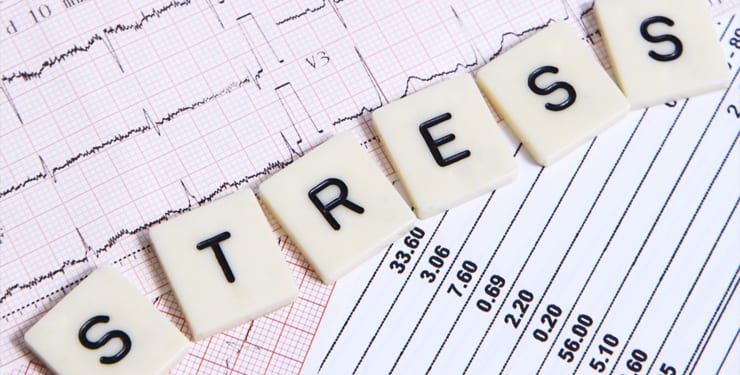
Stress is a natural part of life, and there is even such a thing as “good stress” that can motivate you to take constructive, positive action. But too much stress or the wrong kind of it are an eminently bad thing.
And it’s amazing how many ways there are that “bad stress” can negatively impact both your mental and physical health.
Being aware of the connections between being chronically overstressed and other woes and ailments you may be suffering from is a first step in undoing the damage that being constantly stressed out may be causing.
Here are 7 ways bad stress can negatively impact your life that everyone should be aware of:
1. Loss Of Focus
When life seems to crowd in on your from all sides, you can’t find enough hours in the day to complete necessary tasks, and no matter how hard you struggle, financial ends still don’t meet – stress increases and you lose your focus.
A few people claim they perform better under stress, but they’re probably not thinking of the kind of stress arising from distractions, frustration, and seeming futility. That kind of stress always makes it more difficult to concentrate on and complete tasks, and it also makes it hard to avoid making clumsy mistakes.
2. Emotional Instability
Emotional instability can both cause stress and be a cause of stress. For an intriguing example of how stress and emotional abuse related, see this amazing article: https://thoughtcatalog.com/shahida-arabi/2017/11/50-shades-of-gaslighting-the-disturbing-signs-an-abuser-is-twisting-your-reality/
Stress almost always leads to irritability. It may simmer under the surface until it reveals itself in sudden outburst of anger or in sullen episodes of depression. Stress makes it more difficult to control your emotions or respond in an emotionally appropriate way to others.
3. Weight Gain
Recent studies show a connection between mental stress and weight gain. The hormone cortisol is released into the body in high-stress situations, causing it to crave high-energy foods, drinks, and snacks (which are almost always unhealthy in the average pantry!)
One University of Miami study even found that being placed in a stressful situation can cause people to consume 40% more food than usual.
4. Cardiac Conditions
Stress has a well documented relation to heart disease, strokes, heart attacks, and high blood pressure.
Stressful events can increase the release of the hormone epinephrine which can ill affect the arteries and cell regeneration in high doses.
Blood vessel constriction, abnormal heart rate changes, and damage to the heart muscles themselves can all result. It’s no coincidence that heart attacks often occur when someone with an existing heart problem experiences large amounts of stress.
5. Poor Immune Health
The mind-body connection is more powerful than most of us realize. Living in a state of constant high mental stress puts great physical strain on the body. In particular, it weakens immune health and makes one more vulnerable to all manner of diseases.
When chronically stressed out, you’re much more likely to catch a cold, suffer from headaches and body aches, or develop gum disease. You’re at higher risk for almost anything.
6. Disturbed Sleeping Habits
Stress takes a toll on the body and tends to make you more tired, but at the same time, stress can lead to anxiety, which will cause you to lose sleep. And both falling asleep at night and waking up on time in the morning will become more difficult.
Loss of sleep, in turn, disrupts your circadian rhythms and makes you feel worse and be less productive throughout the day. And then it becomes a “vicious cycle,” because lack of sleep can trigger you to become stressed more easily.
7. Premature Aging
Finally, stress also shortens your “telomeres” at the tips of your chromosomes, which slows down new cell growth.
This then tends to promote earlier development of wrinkles on the skin, weakened and sagging muscles, and poorer eyesight. All in all, more stress over the years makes you look older faster.
Finding ways to relax, destress, find humor in everyday life, see the silvery lining on that rain cloud, and train yourself to control your stress levels even in tense situations is key to both the health of the mind and the health of the body.
